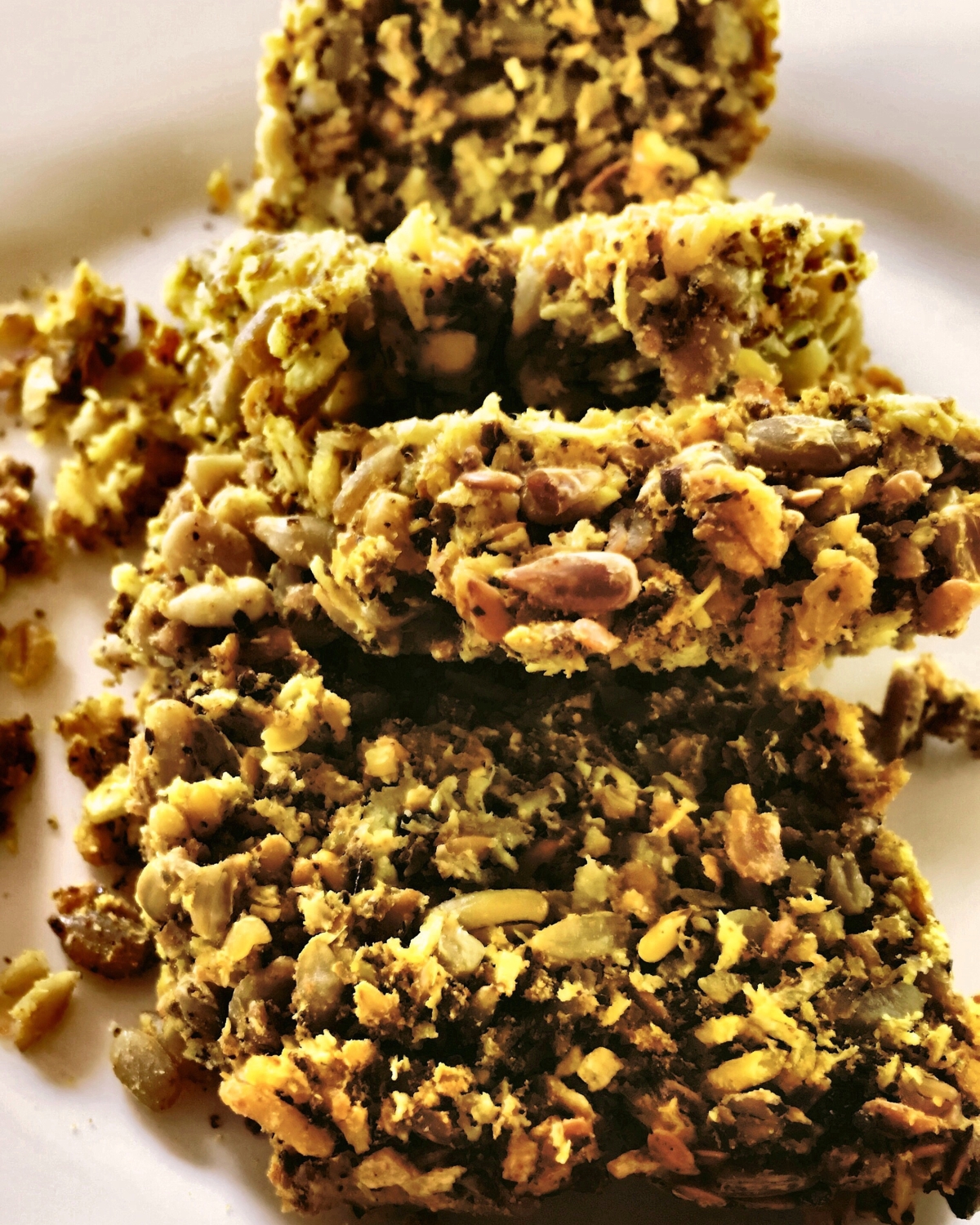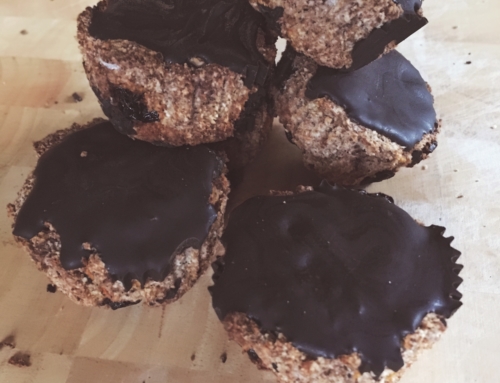Gluten Free Anti Inflammatory Turmeric Bread Recipe
This gluten free anti inflammatory turmeric bread recipe is super easy to make. You can literally make it in the tin and let it do the rest! Made full of seeds, fibre, spices and that obligatory dash of coconut, this gluten free anti inflammatory bread recipe can be made by anyone, no baking skills required!
Makes 1 loaf
Ingredients
- 155g organic sunflower seeds
- 40g organic shredded coconut
- 145g organic whole rolled gluten free oats
- 90g organic flax seeds
- 3 tbsp organic psyllium husk powder
- 2 tbsp organic chia seeds
- 1 tsp organic turmeric powder
- pinch sea salt
- 1 tsp organic ceylon cinnamon
- 1 tsp organic poppy seeds
- 3 tbsp melted organic coconut oil
- 350ml filtered water
- 5 tbsp organic milled hemp seeds – optional
Method
- In lined bread pan or glass bowl combine all dry ingredients & stir well
- Mix coconut oil & water in a measuring cup
- Combine wet ingredients to dry & mix well. The dough needs to be very thick, but if it is too thick add a drop more water
- If using bowl initially, add mixture to lined bread loaf pan
- Leave to stand for at least 2 hours. Can be left overnight if you wish
- When ready to bake, preheat oven to 170 degrees celsius
- Place pan in middle of oven & bake for 20 minutes
- Remove pan from oven & pan, and loaf from pan onto oven rack by tipping it upside down
- Bake for a further 40 minutes
- Let cool completely before slicing & storing!
Equipment
Bread loaf pan
The Nerdy Nutritionist
Psyllium husk (Plantago sp.)
Psyllium husk generally can consist of up to 71% fibre but also are a source of protein, fatty acids and phytosterols. Their main use in food is a bulking agent due to their high fibre content. Unlike our normal thinking pattern, psyllium can be used to ease both diarrhoea and constipation. The method of treatment is dependant on dosage, so please consult your health care practitioner if you wish to know more
Psyllium has lipid lowering potential which is great for anyone with high LDL and triglyceride blood results. It does this by altering cholesterol metabolism, increasing faecal bile acid excretion and increasing hepatic cholesterol breakdown (1)
Psyllium is useful in regulating blood sugar levels through a variety of mechanisms. It slows and reduces glucose absorption through the small intestine, and has been shown to improve glycemic response by modulating postprandial glucose concentrations and insulin requirements (1)
As an aid in weight loss, psyllium can be very useful. The high satiety nature of psyllium means that taken in-between meals will subjectively reduce appetite and subsequence caloric intake
References
(1) Braun, L. & Cohen, M. (2010) Herbs & Natural Supplements – An evidence-based guide (3rd ed.) Elsevier: Australia
Disclaimer
The information on this site is provided as an information resource only and is not to be used or relied on for any diagnostic or treatment purposes. This information does not create any client-practitioner relationship, and should not be used as a substitute for professional diagnosis and treatment.
Please consult your health care provider, or Health from Home Naturally, before making any healthcare decisions.






